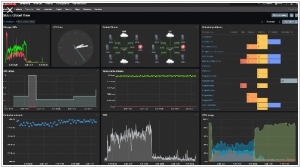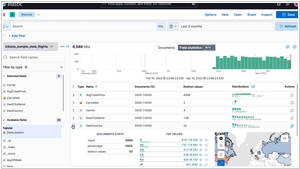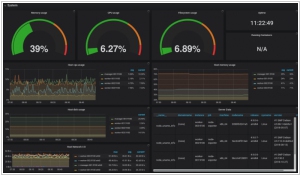Kibana vs Prometheus
July 27, 2023 | Author: Michael Stromann
Kibana and Prometheus serve distinct purposes in the field of data monitoring and analytics. Kibana, part of the Elastic Stack, is an open-source data visualization platform primarily designed for real-time data exploration and analysis. It excels in creating interactive dashboards, visualizing data from various sources, and enabling users to gain insights into their data quickly. In contrast, Prometheus is an open-source monitoring and alerting toolkit specifically built for collecting and storing time-series data. It specializes in monitoring the health and performance of systems, services, and applications, utilizing a pull-based model to gather data from target endpoints.
See also: Top 10 Business Intelligence software
See also: Top 10 Business Intelligence software
Kibana vs Prometheus in our news:
2019. Zabbix 4.2 adds built-in support of Prometheus data collection

Zabbix Team has recently unveiled the launch of Zabbix 4.2. This latest version introduces a comprehensive monitoring system equipped with cutting-edge features, including data collection and processing, distributed monitoring, real-time problem and anomaly detection, alerting and escalations, visualization, and more. Zabbix 4.2 significantly enhances data collection capabilities, supporting diverse methods such as push and pull from various sources like JMX, SNMP, WMI, HTTP/HTTPS, RestAPI, XML Soap, SSH, Telnet, agents, scripts, and more. Notably, the integration with Prometheus has been added as a new feature, allowing native support for the PromQL language. Additionally, the utilization of dependent metrics empowers the Zabbix team to efficiently gather a vast amount of Prometheus metrics. By making a single HTTP call, all the required data can be retrieved and subsequently reused for relevant dependent metrics.




